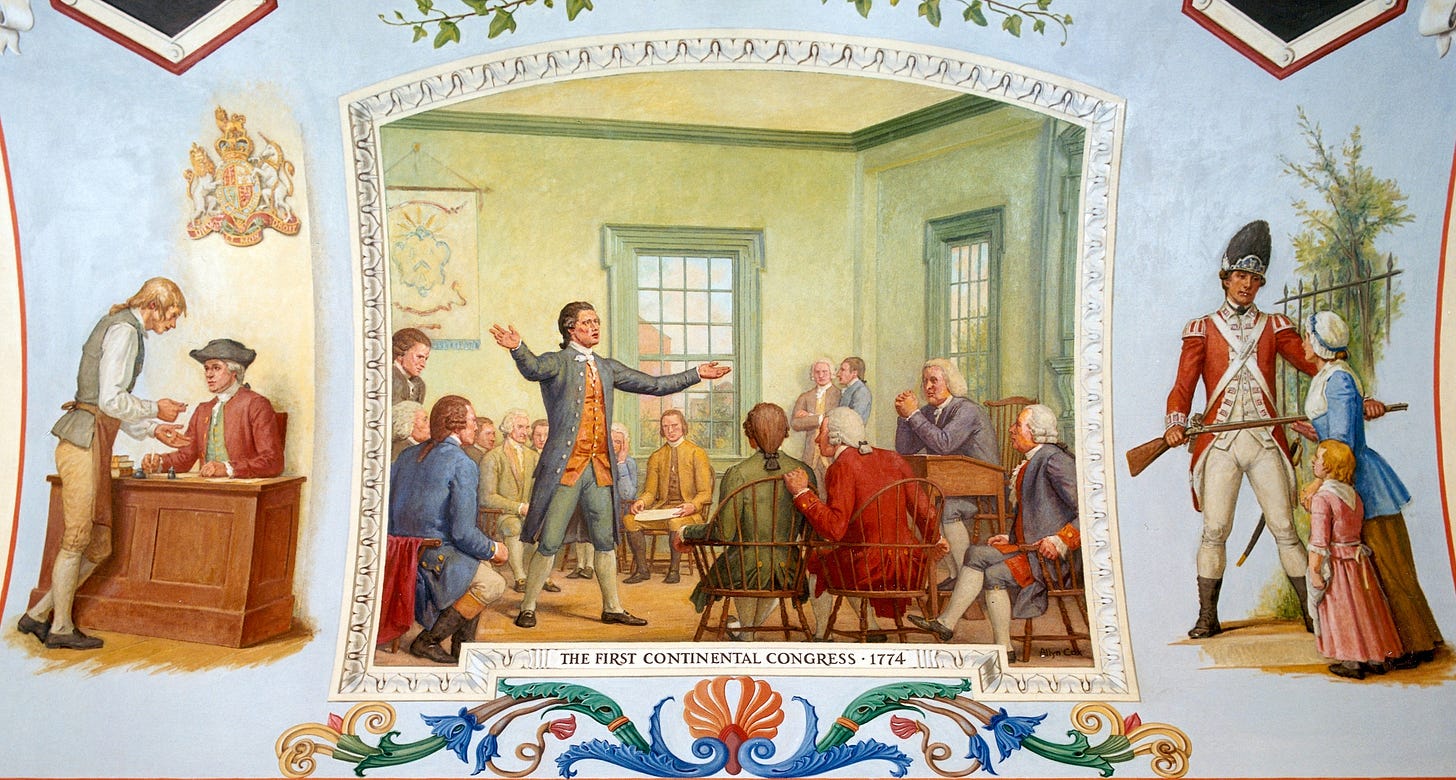Herewith a summary to get things started by someone who normally spends her days firmly in the 20th century…
Britain looked to her American colonies in the eighteenth century as a place from which to pull resources, and as a place to sell things she produced. The trouble was, that as the century progressed, the terms of all of this began to grate on the locals. Turns out they were pretty one-sided. Antagonism began to build after Britain defeated the French in North America in 1763, as she sought to pay for said war by billing colonists.
Firstly, if the French had been dispensed with, then why should they pay towards the King’s army? They had their own militias for keeping order. Calls began to get louder for no taxation without representation, and then came the Stamp Act in 1765. This delightful piece of British legislation resulted in rioting, some tarring and feathering but more importantly. a protest statement from nine of the colonies. It was pretty much ignored, but a precedent had been set for these previously almost entirely separate entities to meet and discuss their shared interests.
The Boston Tea Party happened in 1773, further annoying the British and leading to more arbitrary measures to try and impose dominance over the colonies. At this point people began to get really fed up, and militias began to stockpile weapons and ammunition in preparation for a spot of armed resistance. Over the course of September-October 1774, the First Continental Congress met in Philadelphia and the thirteen colonies came up with their own government. In order to govern, however, they were going to have to go to war. Asking the British politely if they minded buggering off was not on the table.
A panel in the US Capitol building depicting the Congress. (Wikipedia)
That’s some broad strokes, but in truth, the situation on the ground was a lot more complicated that Mel Gibson would have you believe…
Alex Churchill’s HistoryStack is a reader-supported publication. Generous subscribers pay for the time and expense it takes to research and write content for the cost of one fancy coffee a month. If you join them, you’ll be receiving articles for as little as 52p each.
Keep reading with a 7-day free trial
Subscribe to Alex Churchill’s HistoryStack to keep reading this post and get 7 days of free access to the full post archives.




